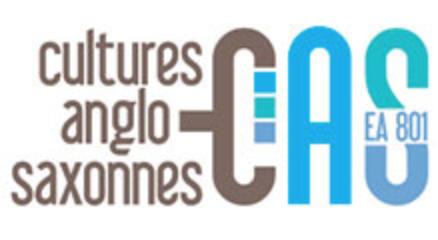-
Partager cette page
Coordonnées
- Adresse
- Institut National Jean-François Champollion
- john.ford@univ-jfc.fr
Discipline(s) enseignée(s)
Littérature anglaise médiévale, littérature anglaise de la renaissance (Shakespeare, etc.), philologie anglaise et linguistique diachronique ; phonétique ; civilisation britannique (Anglo-Saxons, Normands et Plantagenets), littérature américaine (XXe siècle) ; poésie en anglais et littérature en vers.
Thèmes de recherche
Littérature anglaise médiévale, philologie, littérature en vers, oralité en littérature, sexualité et genres (‘gender and genre’), littérature et culture populaire.
Activités / CV
Formation et carrière
- Doctorat (2001) : « From Poésie to Poetry: Remaniement and Medieval Techniques of French-to-English Translation of Verse Romance », University of Glasgow, dir. Prof. Jeremy J. Smith (University of Glasgow). Jury : Prof. Graham Caie (University of Glasgow), Thomas G. Duncan (St. Andrews University).
- Maître de Conférences : 2005-Présent : MCF à INU Champollion, Albi.
Principales publications
Ouvrages
- FORD, John (ed.) Anglo-Norman Amys e Amilioun: The Text of MS Karlsruhe 345, Codex Durlac 38 in Parallel with MS London Royal 12.C.XII. Oxford: Society for the Study of Medieval Languages and Literature. Medium Aevum Monograph (new series) XXVII (2011).
Articles
- “Horn Childe Lines 199 and 229: Þo or Þei Reconsidered.” Notes and Queries (2023): gjad089.
- “Horn Childe Lines 199 and 229: Þo or Þei.” Notes and Queries 70.3 (2023): 135–137.
- “Birds of a Feather: Gay Uncle Jack and Queer Cousin Francis in To Kill a Mockingbird.” ANQ: A Quarterly Journal of Short Articles, Notes, and Reviews (2022): DOI: 10.1080/0895769X.2021.1980716.
- “Ignoring Crecy, Forgoing Poitiers and Adding to Agincourt: (For)getting the Battles Right in the Record.” Shakespeare en devenir 16: 'Views from and of the Renaissance' 'Historicizing events: facts or fiction' (2022): DOI: https://shakespeare.edel.univ-poitiers.fr/index.php?id=2667.
- Ford, John and Sarali Gintsburg. Introduction. Transitional Texts: Drifting between the Oral and the Written. Ed. Sarali Gintsburg, John C. Ford and Asier Barandiaran Amarika. RILCE: Revista de filología hispánica, Número extraordinario monográfico 36.4 (Dec., 2020): 1275–1323. DOI: 10.15581/008.36.4.1239-50.
- “Inverse Relationship of Orally-Based Noetic Processing and Skeuomorphic Formulaicity in the Middle English ‘Matter of England’ Verse Romances.” Transitional Texts: Drifting between the Oral and the Written. Ed. Sarali Gintsburg, John C. Ford and Asier Barandiaran Amarika. RILCE: Revista de filología hispánica, Número extraordinario monográfico 36.4 (Dec., 2020): 1275–1323. DOI: 10.15581/008.36.4.1275-323.
- “Land Tenure in The Tale of Gamelyn.” Medium Ævum 89.1 (2020): 23–49.
- “Two or III Feet Apart: Oral Recitation, Roman Numerals, and Metrical Regularity in Capystranus.” Neophilologus 102 (2018).
- “Same Old New South? Stone Mountain Park and the Theme of Pride over Prejudice.” Les Cahiers de FRAMESPA, Special Issue: Staging American Dreams. 2017.
- Review Essay: Formulaicity in Jbala Poetry. By S. Y. Gintsburg. (Tilburg: Prisma Print, 2014). Sociolinguisic Studies 10.1-2 (April, 2016).
- “Give or Take – a Reinterpretation of Line 800 of King Horn.” The Mediaeval Journal 5.1 (2015): 35-54.
- “Evolution and Devolution: An Examination of the Historical Development of Scottish English.” La Tribune Internationale des Langues Viviantes 36. (2004): 12-23.
- “Metatextual Evidence of a Manuscript Relation Based on Correlation of Rubrication and Decorated Capitals in a Translated Medieval Text.” PECIA : Ressources en médiévistique 4 (2004): 1-28.
- “Merry Married Brothers: Wedded Friendship, Lovers’ Language and Male Matrimonials in Two Middle English Romances.” Medieval Forum 3 (2003). 10 pages:
- “There’s Something Amis(s) with your New Ami: Translation and Adaptation in the Middle English Version of Amis and Amiloun.” Paroles et silences, Publication de l’Association des Médiévistes-Anglicistes de l’Enseignement Supérieur, HS 10 (2003): 95-118.
- “Towards a New Understanding of Formulae: Prototypes and the Mental Template.” Neuphilologische Mitteilungen 103.2 (2002): 205-226.
- “Contrasting the Identical: Differentiation of the ‘Indistinguishable’ Characters of Amis and Amiloun.” Neophilologus 86 (2002): 311-323.
Chapitres d’ouvrages
- “Travel in the Middle English Matter of England Romances, and the Changing Significations of Horses and Horsemanship.” In Horses Across the Medieval World. Eds. Anastasija Ropa and Timothy Dawson. Leiden: Brill (2022): 79-111.
- “‘Once More into the Breach!’: Allusions to Agincourt and the Medieval Past in Cross-Channel Political Reporting of Brexit.” In Politics and Medievalism (Studies) II. Studies in Medievalism Series 30. Ed. Karl Fugelso. Cambridge: D. S. Brewer (2021): 55–73.
- ‘Speaking of Reading and Reading the Evidence: Allusions to Literacy in the Oral Tradition of the Middle English Verse Romances,’ Chapter 1 of The History of Reading, Vol.1: International Perspectives, c.1500-1900. Eds. W.R. Owens and Shafquat Towheed. Basingstoke: Palgrave Macmillan Publishers (2011): 15-31.
- “In Romance as We Read and as We Hear in Geste: Written Orality in the Medieval ‘Short Story’: the Verse Romances of the 13th and 14th Centuries.” Journal of the Short Story in English, Special Issue 47. (2006): 29-48.
Comptes rendus
- Solicited Review: Mockingbird Grows Up: Re-Reading Harper Lee since Watchman, eds. Cheli Reutter and Jonathan S. Cullick (Knoxville: University of Tennessee Press, 2020), The ALH (American Literary History) Online Review Series 26,1 (Winter 2021).
- Review: Trinity Apocalypse. Ed. Ian Short (Oxford: Anglo-Norman Text Society, 2016). Speculum 93, 3 (2018).
- Review: Medieval Hackers. By Kathleen E. Kennedy. (punctum books, 2015). The Medieval Review (15 September 2015).
- Review: Les Renaissances 1453-1559. By Philippe Hamon. Histoire de France 5. Ed. Joël Cornette. (Paris: Belin, 2009). The Sixteenth Century Journal: The Journal of Early Modern Studies 43, 1 (2012): 161-62.
- Review: Les Guerres de Religion 1559-1629. By Nicolas Le Roux. Histoire de France 4. Ed. Joël Cornette. (Paris: Belin, 2009). The Sixteenth Century Journal: The Journal of Early Modern Studies 42, 4 (2011): 1132-33.
- Review: Idleness Working, the Discourse of Love’s Labor from Ovid through Chaucer and Gower. By Gregory M. Sadlek (Washington: CUA Press, 2004). The Medieval Review (2004).

